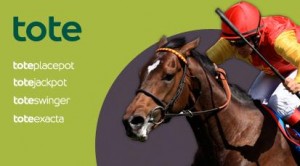
The Tote may soon be able to offer pool betting on all sports, as well as novelty markets, if the UK government goes ahead with plans to scrap existing legislation which restricts the Tote to pool bets on horseracing. But if Gordon Brown and Co think that this will result in venture capitalists queuing around the block to buy the struggling betting company, they – not for the first time – are sorely mistaken.
“Today’s proposed move should come as welcome news to bookmakers across the UK,” said Sports Minister Gerry Sutcliffe, of the proposed changes. “Not only will this allow the Tote to remain competitive and offer best value to the taxpayer when it is sold, it will also bolster the businesses of other bookmakers who will be able to offer punters more choice.”
Quite where Sutcliffe gets this idea from is beyond me. For the uninitiated, pool betting, which is particularly popular in the US, is the system by which punters back an event at unknown odds and receive their winnings once the operator has taken its own cut and divided up the remainder equally among the winners.
This can mean that the odds for a win can be better than the fixed odds generally on offer elsewhere. But that only really tends to be the case for bets on longer shots, as there are less people that bet on the outsider. Mon Mome, for example, won the Grand National last year at general odds of 100/1 and those who placed that particular bet on the Tote received 125/1 on the surprise winner.
Trouble is, for pools betting to be successful, it needs liquidity. And Tote Pools betting just doesn’t have any. People will tend to bet on the Tote pool when they’re at the races, because they can’t be arsed to stray to far from the bar to place their bets with the on-course bookmakers – and there is a noticeable spike when the Scoop 6 (predicting six winners in the chosen televised races of the day) is on a rollover because huge returns are guaranteed.
But by and large few people bets on or actually fully understand the Tote pool, which means the company itself has done a dreadful job of their marketing, particularly when you consider that they have a monopoly on the horseracing pool.
But you have to ask the question: if pools betting, which lends itself to horseracing and greyhound racing better than any other sporting medium, isn’t working for the nags, how on earth does the government think it’ll work for other sports? After all, most bookmakers are already entitled to have pool betting on other sports, but nobody really bets on it?
The only way pool betting can work is if you have liquidity. And the only way to have liquidity is by giving people a reason to bet on it. And people simply won’t bet in their thousands if they don’t know how much they stand to win by doing so. So, whether or not we’re talking about horseracing, football or golf, pool betting will only work if there is a guaranteed jackpot.
But it’s a vicious circle, because no bookmaker will guarantee a jackpot if they don’t know how many people are going to bet, which is why a monopoly is necessary. Personally, I am against the idea of a monopolies as a rule – they rankle with my sense of fair play – but the reason people bet on the National Lottery is because it is a monopoly and because they know they will win a guaranteed amount.
All of which brings us back to the Tote. The reason it is ailing is because their shops are about as modern as 1960s sex shops, their product is poorly marketed and they do not guarantee big payouts (apart from in the case of the Scoop 6). Somebody could undoubtedly do a better job with their product – but offering pool betting on non-horseracing events is about as attractive an investment incentive as opening a sushi bar at Crystal Palace. It ain’t going to make the slightest bit of difference.
